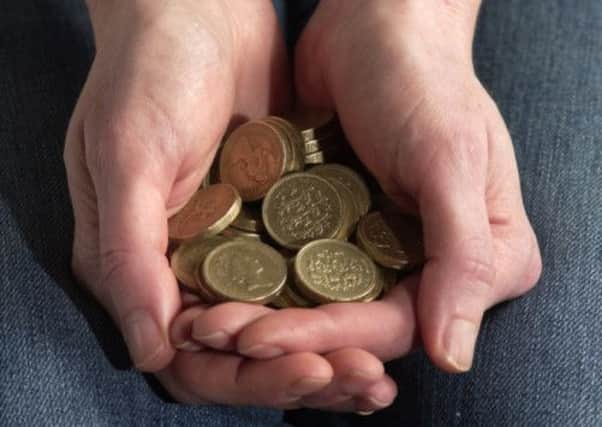Family budgets take hardest hit for 12 months


Households had £155 a week of discretionary income in April, marking two months of annual declines in a row, Asda’s latest income tracker found.
The report uses official figures to work out a family’s spending power, which is the money they have left over after essential bills, such as groceries, fuel, mortgage interest payments and rent, for leisure or non-essential activities.
Advertisement
Hide AdAdvertisement
Hide AdProlonged spells of cold weather upping household utility costs and continued difficult economic conditions have left many Scots struggling to pay the bills.
The recent worsening trend follows a series of improvements to people’s finances that had been recorded over the last year. Families are now £1 a week worse off than the same month last year and have £10 a week less than they did during a peak in February 2010, the report said.
Weak income growth was the “primary driver” behind many families’ budgets taking a turn for the worse, with wage growth falling at the fastest rate since the start of the economic crisis.
Average pay rose just 0.8 per cent over the year to April, marking the lowest rise since comparable figures began in 2001.
Household expenditure makes up about 60 per cent of Scottish GDP, and during 2011 Scottish households consumed around £73 billion of goods and services. The cost of utilities such as electricity and gas played a key role in the decline in people’s budgets, as gas prices rose 8.3 per cent year-on-year, marking the highest rate since August 2012.
In the last year, Shelter Scotland has seen a 44 per cent increase in homeowners calling for advice on their homes being repossessed after becoming unable to meet their housing costs.
Food prices across the UK have risen by nearly 40 per cent since 2007, while businesses and consumers have also had to endure the impact of rising oil and commodity prices, a weakening pound and hikes to VAT in recent years. There was some good news for motorists, however, as fuel costs fell by 3.7 per cent year-on-year.
The overall cost of transport saw a 0.1 per cent annual decline, marking the first year-on-year drop since July 2009.
Advertisement
Hide AdAdvertisement
Hide AdEmployment in Scotland increased by 54,000 between January and March this year, which the Scottish Government has hailed as the largest quarterly rise since figures began in 1992.
However, there was a rise in the amount of jobless Scots claiming jobseeker’s allowance.
Last month, retail sales were down 2.1 per cent compared to April last year, according to the Scottish Retail Consortium (SRC).
Fiona Moriarty, director of SRC, said that while the figures did not reflect it, there were “tentative signs” that consumer confidence was starting to lift.
It is hoped Scottish households will benefit from the raising the income tax threshold to £10,000 from next April, which will take a quarter of a million Scots out of income tax altogether, and cut it by £700 for more than two million others.